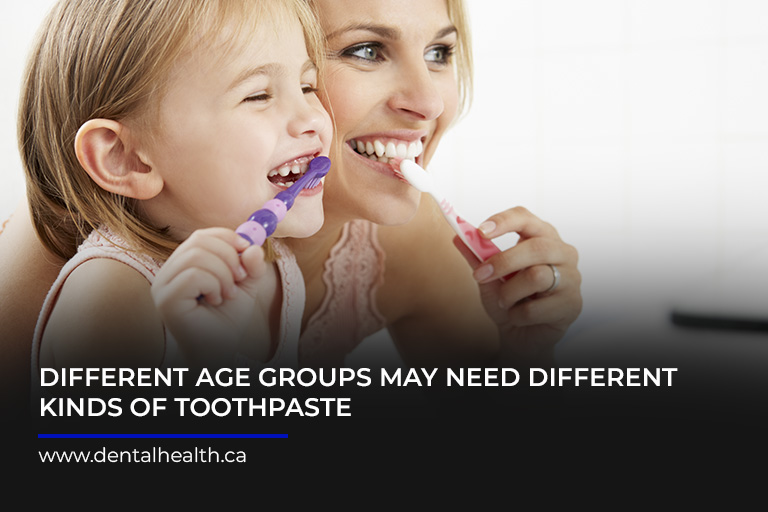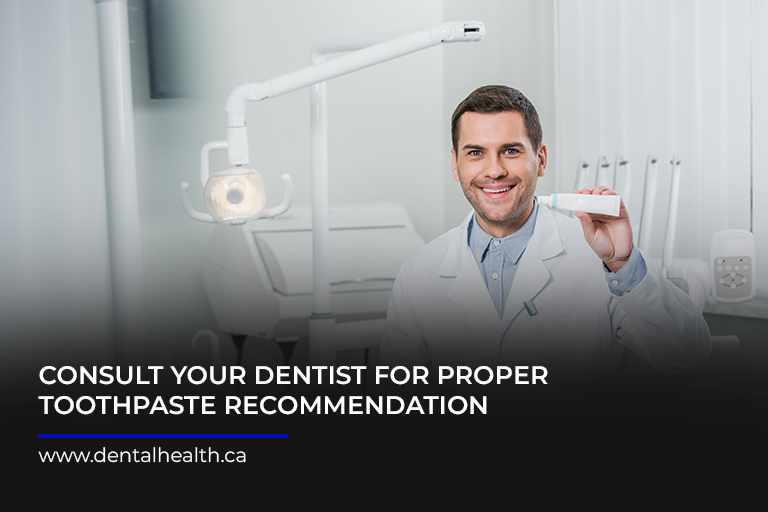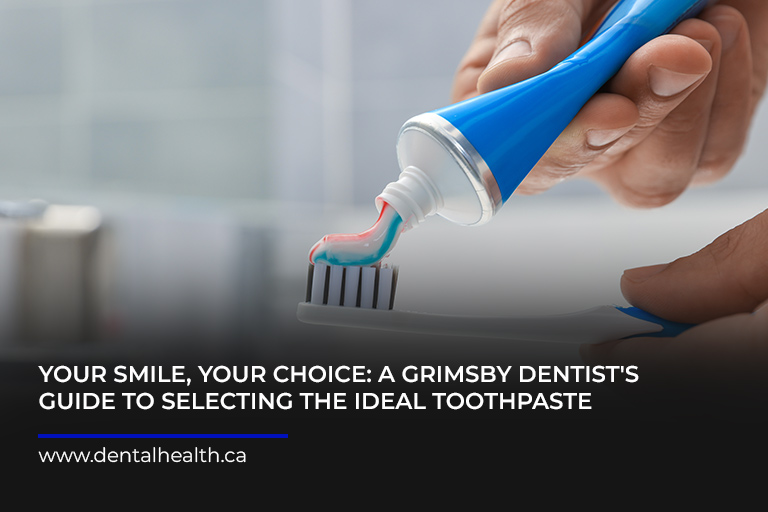A healthy smile is a reflection of your overall well-being. Toothpaste, a seemingly mundane product, plays a pivotal role in maintaining that smile. Using the right toothpaste can significantly reduce the risk of cavities, gum disease, and a host of other dental problems. A Grimsby-based dentist offers expert insights to help you navigate the vast array of toothpaste options available and select the one that best suits your individual needs.
Types of Toothpaste
Each toothpaste is formulated with a unique blend of ingredients to address specific oral health concerns. Some common types include:
- Cavity Prevention: Toothpastes containing fluoride are essential for cavity prevention. Fluoride strengthens tooth enamel, making it more resistant to acid attacks that lead to cavities. Some toothpastes also include antibacterial agents like xylitol to further enhance protection against decay.
- Sensitive Teeth: If you experience tooth sensitivity to hot or cold temperatures, toothpastes with desensitizing agents can offer relief. Ingredients like potassium nitrate and stannous fluoride work by blocking the transmission of pain signals from the tooth’s surface to its nerves.
- Gum Disease: Gum disease is a serious condition that can lead to tooth loss if left untreated. Toothpastes designed for gum health often contain antibacterial agents like triclosan or stannous fluoride, which help reduce plaque and gingivitis, the early stage of gum disease.
- Whitening: Toothpastes with whitening agents like hydrogen peroxide or baking soda can help remove surface stains and brighten your smile. However, it’s important to use them judiciously as excessive use of whitening toothpastes can lead to enamel erosion.
- Natural and Organic Toothpastes: While these options may appeal to those seeking natural products, it’s crucial to ensure they contain fluoride for optimal protection against cavities. Another concern is the lack of regulation and standardization for natural toothpastes, making it challenging to evaluate their effectiveness compared to traditional toothpastes.
Choosing Toothpaste for Specific Needs

Different age groups and individuals with specific medical conditions may require tailored toothpaste choices:
- Children: Children’s toothpastes have lower fluoride concentrations to prevent excessive intake, which can lead to fluorosis. They also come in a variety of kid-friendly flavours to encourage brushing. Additionally, some children’s toothpastes contain mild abrasives suitable for developing teeth.
- Adults: Most adults can benefit from a standard fluoride toothpaste with additional features like tartar control or whitening, depending on individual needs. For those with specific concerns like gum sensitivity, a dentist can recommend a toothpaste with added anti-inflammatory ingredients.
- Seniors: Seniors may experience dry mouth due to medications or medical conditions, making them more prone to cavities. Toothpastes formulated for dry mouth can help alleviate this issue. These toothpastes often contain moisturizing agents and salivary stimulants to promote natural saliva production.
- Medical Conditions: Certain medical conditions like diabetes can increase the risk of oral health problems. Your dentist can recommend specific toothpastes to address these concerns. For instance, individuals with diabetes may benefit from toothpastes with antibacterial properties to control gum disease risk.
Key Ingredients to Look for in Toothpaste
Selecting the right toothpaste is crucial for maintaining optimal oral health. Here’s a breakdown of key ingredients that can contribute to a brighter and healthier smile:
- Fluoride: This essential mineral strengthens tooth enamel, making it more resistant to acid attacks that lead to cavities. It’s a cornerstone ingredient in any toothpaste aimed at preventing tooth decay.
- Desensitizing Agents: If you experience tooth sensitivity to hot or cold temperatures, look for toothpastes containing potassium nitrate or stannous fluoride. These ingredients can block pain signals, providing relief and allowing you to enjoy your favourite foods and beverages without discomfort.
- Antibacterial Agents: Triclosan and stannous fluoride are common antibacterial agents found in toothpaste. They help reduce plaque buildup and gingivitis (inflammation of the gums), promoting a healthier oral environment.
- Xylitol: This natural sweetener not only adds a pleasant taste to toothpaste but also offers oral health benefits. Xylitol inhibits the growth of bacteria that contribute to cavities, making it a valuable addition to your toothpaste.
- Remineralizing Agents: Some toothpastes contain ingredients like calcium phosphate or nano-hydroxyapatite, which can help remineralize weakened enamel, reversing early stages of tooth decay.
- Anti-inflammatory Agents: For individuals with gum disease or inflammation, toothpastes with anti-inflammatory ingredients like cetylpyridinium chloride can help soothe and protect gum tissue.
Dentist’s Recommended Toothpaste Checklist

To ensure you’re making an informed choice, consider these key factors when selecting your toothpaste:
- Canadian Dental Association (CDA) Seal of Acceptance: The Canadian Dental Association (CDA) Seal of Acceptance is an assurance to consumers that a toothpaste has undergone thorough evaluation and meets the CDA’s strict criteria for safety and effectiveness in promoting oral health.
- Fluoride Content: An optimal fluoride content for adults and children over six years old typically ranges between 1350 to 1500 parts per million (ppm), providing adequate protection against tooth decay without posing any health risks.
- Abrasiveness (RDA): Relative Dentin Abrasivity (RDA) is a key factor in determining a toothpaste’s impact on tooth enamel. Generally, an RDA between 70 and 150 strikes a balance between effective stain removal and minimizing enamel wear, making it suitable for most individuals.
- Ingredients to Avoid: While toothpaste plays a vital role in oral hygiene, certain ingredients can be detrimental to your health. It’s essential to be aware of these potentially harmful components when selecting your toothpaste:
- Sodium Lauryl Sulphate (SLS): This foaming agent can irritate sensitive mouths and potentially contribute to canker sores.
- Triclosan: An antibacterial agent that has raised concerns about its impact on hormone regulation and the development of antibiotic resistance.
- Microbeads: These tiny plastic particles were once used for their abrasive properties, but they pose an environmental threat and are now banned in many countries.
- Alcohol: Alcohol can dry out your mouth, reducing saliva production, which is essential for maintaining a healthy oral environment.
Beyond Toothpaste
- Brushing Technique: Brush your teeth for two minutes twice a day using a soft-bristled toothbrush and proper technique. Your dentist or hygienist can demonstrate the correct technique. Additionally, consider using an electric toothbrush, which can be more effective in removing plaque compared to manual brushing.
- Regular Dental Visits: Schedule regular checkups and cleanings with your Grimsby dentist to maintain optimal oral health. The Canadian Dental Association recommends a dental checkup at least once a year, or more frequently if recommended by your dentist. Regular cleanings can remove tartar buildup that brushing alone cannot address.
- Diet and Lifestyle: Limit sugary and acidic foods and beverages, which can erode enamel and contribute to cavities. A balanced diet rich in fruits, vegetables, and calcium-rich foods can promote strong teeth and gums. Additionally, avoid smoking and excessive alcohol consumption, as these habits can negatively impact oral health.
Selecting the right toothpaste is a personal choice that should be guided by your individual needs and preferences. By considering the information in this guide and consulting with your Grimsby dentist, you can make an informed decision that promotes a healthy and radiant smile.
For personalized advice on choosing the best toothpaste for you and your family, contact Kingsway Family Dentistry at (905) 563-4001.

